The beginning of a new phase
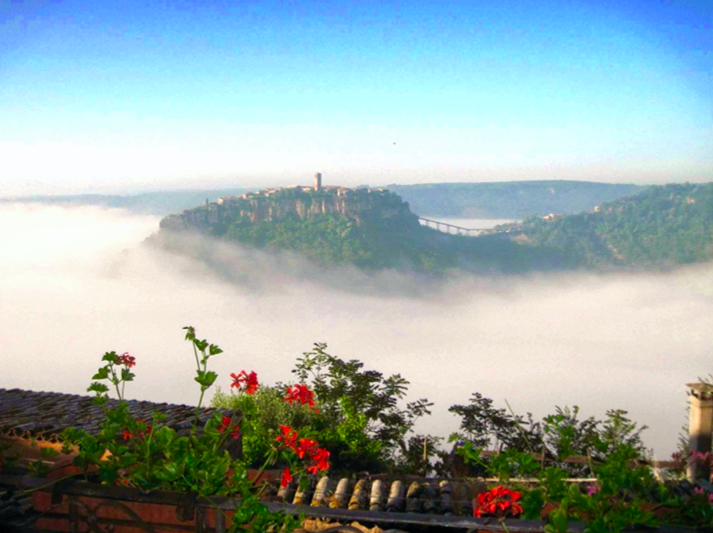
Family Background in Italy
We were destined to end up somewhere unusual.
My parents are incredibly adventurous and are at home wherever they are in the world. My mother is a retired cookbook author and culinary instructor who, because of her talents in all things food related, often spent time in Italy. For many years, she, along with my father, and groups of friends and family, rented villas in Tuscany and Umbria.
There was one villa they loved – a large, rambling stone house set among wineries and olive groves. When they stayed there, they’d go to the bigger city, Orvieto, for shopping, concerts, dinners with friends, all the good Italian stuff. But there was also a charming little village right down the street, ready to fulfill the need for a last-minute grocery item or a quick bite at a pizzeria. Going to that village was like stepping back in time. Old women sat in pairs along the street, shelling peas or stripping fennel in the shade of the tall stone buildings. Or they gathered together, chatting away at the communal laundry baths – scrubbing their clothes in huge stone troughs fed by a freezing cold spring. The occasional resident would arise from the valley on the back of a donkey and a very elderly cobbler repaired shoes at his little storefront on the main street.
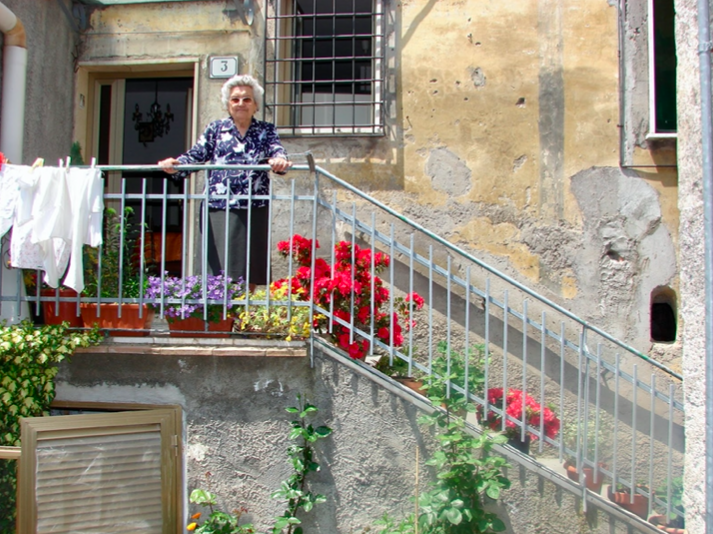
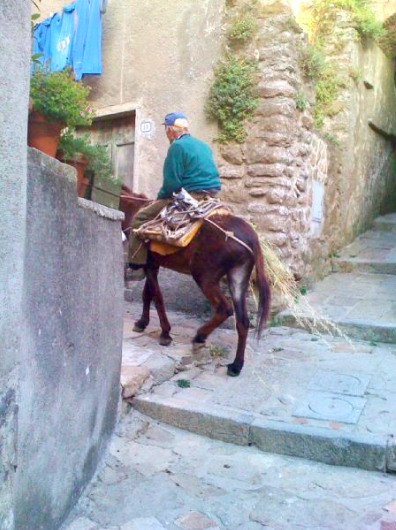
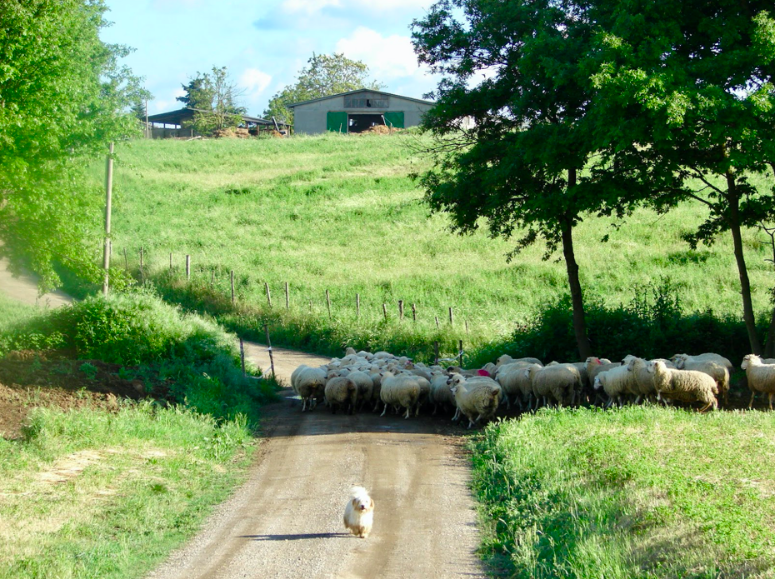
Casa Erica Purchase
On a whim, my mother asked a realtor friend to show her some villas around Orvieto. Signor Galli showed up in his fast car with a cashmere blazer elegantly draped over his shoulders, cigarette in hand. Molto Italiano. He took Mom to see a series of decrepit crumbling villas, most of them mere shells of their former glory. The kind of places you buy when you’ve got all the time in the world for a life-sucking project – it was a hard pass for her. He mentioned that he’d brought the key to a smaller dwelling, part of a former monastery in a small town. Mom wasn’t interested at all but went along to be polite. To her surprise, they pulled into Lubriano. Although she liked Lubriano, she wanted vineyards and rolling hills and was wholly disinterested in a village home. But as Signor Galli opened the door to the house, Mom stepped into the fresco-ceilinged salon, opened the window to a sweeping view of Civita di Bagnoregio, and quickly changed her mind. She called my father in the middle of his busy work day back in corporate America and asked him if he’d like a very, very old house in village Italy. He had a few questions: Does it come with land? Do we have neighbors? How big is it? Mom didn’t have any answers, the realtor didn’t speak English and back then, Mom spoke little Italian. But our family is part of the South African diaspora and our relatives are scattered throughout the globe. So my parents decided right then that central Italy sounded like a good family reunion spot, and within 30 minutes, they’d placed an offer on the home.
Unfortunately, the Italian bureaucracy did not get the love at first sight memo, and it was something of a miracle that the sale went through. The offer, the contract, the long, drawn out, very formal legal sale, the ceremonial handing over of the nine-inch key, the celebratory prosecco toast, and then suddenly, it was theirs.
But they hadn’t been back since the day my mother had seen it months before, and even that viewing had been a quick pass-through. They drove to the house, opened the door, and had a heart-stopping what-have-we-done moment. Yes, the view was stunning, and the property had great potential, but there was no kitchen, and very little plumbing or electricity. It was closer to a place for ancient monks than a large, modern family, especially one that lived 6000 miles away. The garden was overgrown, and some of the walls were crumbling. It was no rookie reno, and my parents, although both hard workers, spoke almost no Italian and were more into garden parties than garden tools.
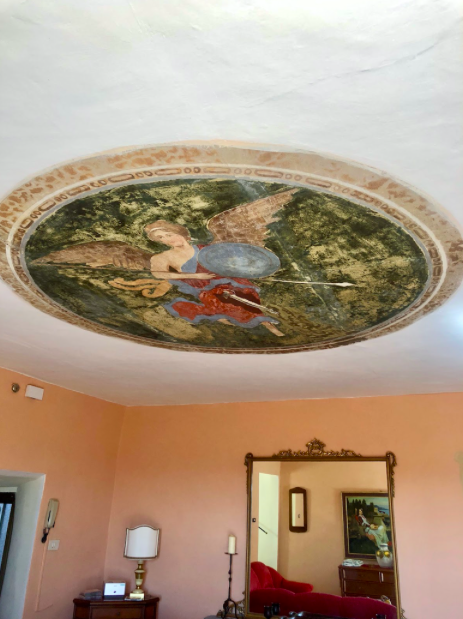
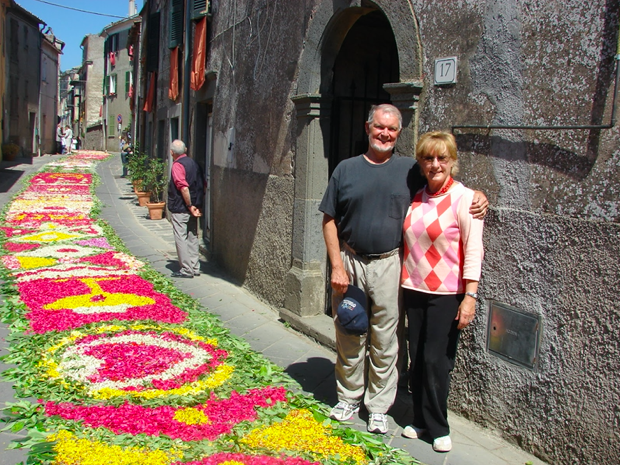
History of Lubriano
But Lubriano is an incredibly historic place, and the thought of being a part of that history was enticing. The town is set in the heart of where the Etruscan (pre-Roman) civilization began around 800 BCE. Although the name Lubriano isn’t mentioned in writing until 1100 CE, there’s a Roman wall just below the village square. Skeletons from a Longobard invasion in 600 CE were also recently found under the church floor. (Side note: In true Italian style, this discovery was so “business as usual”, that the main concern was how quickly the church floor could be repaired – who cares about ancient invader bones.)
It was clear from the start that this town had so much character – we’ve since learned that it has weathered more than its share of trials: dozens of invasions, occupations, and battles, the Black Plague, a massive earthquake in 1695, and more recently, World Wars I and II. Nazis were stationed in the town palazzo in the 1940s, and the townspeople were literally starving as they fought. Coincidentally, we discovered many years later that my South African grandfather’s battalion fought the Germans about a mile from Lubriano. You can read my mother’s book about that incredible twist of history.
The property was built as part of a Jesuit monastery. The older parts of the monastery are around 600 years old, and the newer parts, around 400. The last stone was most likely laid around the time the Pilgrims stepped onto Plymouth Rock. For centuries the primary industry in Lubriano was the making of medicinal pottery, vessels to hold healing ointments and potions. Casa Erica has a large garden, and one of our local friends has told us that medicinal herbs were grown there.
Present Day
The first decade in the house was a blur of renovations and discoveries, house guests and festivities. My father retired, and my parents began to spend half the year at the house. They purchased another portion of the larger property so there would be space for our large family. They gave each part of the property a different name, Casa Erica is one of the homes, named for me. (Erica is the Latin name for the Heather flower.) Immigrants have a knack for assimilating, and, having practiced in this area, Mom and Dad immersed themselves in the village. My parents are generous and genuine, and have always been welcomed into any community in which they’ve settled. They learned the local customs and studied Italian until they were fluent. Before long, they were invited to all the local parties and were friends with everyone from the palace owner to the priest to the barista. They truly care about the town and its residents. You can read more about my family’s early days in Lubriano here or in my mother’s funny and heartwarming book.
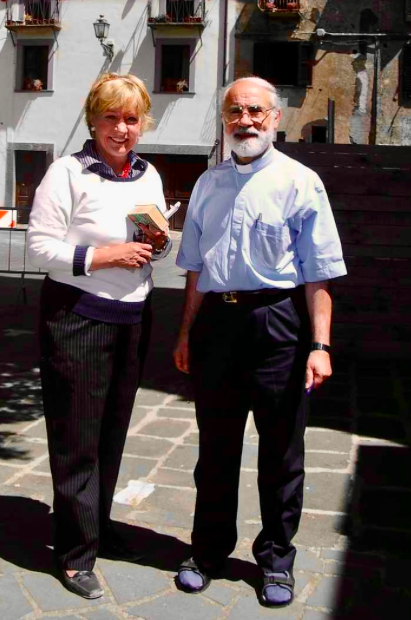
We became fast friends with our elderly next-door neighbors. When my older children were young, we spent part of each summer at the house. Signora Medori kept me on my toes, lovingly chiding me when I let my jet-lagged babies sleep too late, and recoiling in concerned horror the day she found out we were raising these precious babies as Protestanti, rather than Cattolica. The Medoris spoke the local dialect, not quite Italian, and most of our daily interactions were a one-way rapid fire dialect, punctuated with lots of hugs, kisses, and affection.
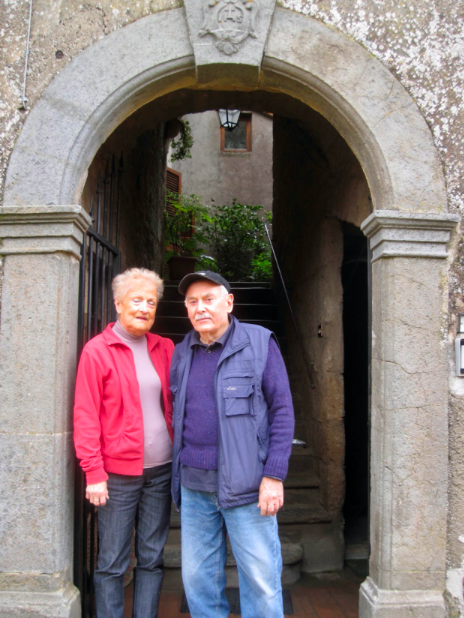
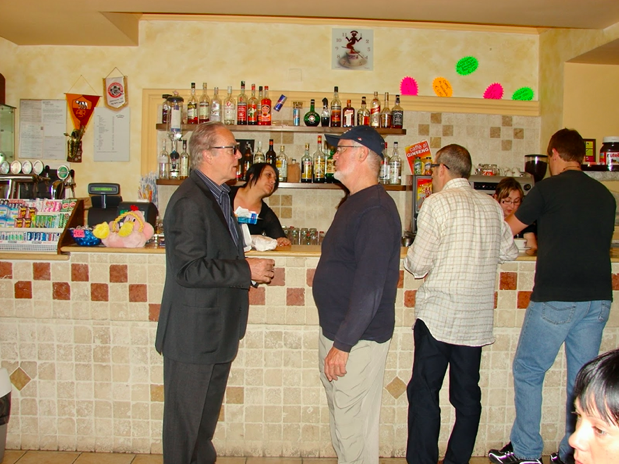
We’ve been in Lubriano for 21 years now, and a lot has changed. Most of the townsfolk hadn’t met an American before my parents, and now there are several Americans who live in Lubriano full time. The days of hand-washed laundry at the baths, black-veiled widows sitting outside photo-worthy doors, and donkeys wandering through the valley are long gone. The Medoris have passed away, and I still get a lump in my throat when I open the monastery gate and pass their home, now locked up and silent.
But an ancient village changes slowly, and turning onto Via Roma is still like making a U-turn in time. Compared to my life at home, everything here is slower, more beautiful, and more intentional, and because it’s Italy, also more exuberant and dramatic. The chatter at the coffee bar is still loud and animated, there are enough festivals to exhaust your average American (me), and there’s a constant stream of friends and neighbors into our back garden.
The village is now deep in our hearts. It’s the place my older boys and their wives chose for their honeymoons, the place we go to reunite with far-flung family, and the place we want to share with all those we love. The house is a deeply healing place; my mother often says there are centuries of prayers in the walls. We’ve had hundreds upon hundreds of guests there over the years, and the ability of the house and the town to restore weary souls never fails to amaze us. We feel more like present-day guardians than owners. The house belongs to the village, and to Italy. We’re merely taking care of it for now, and we’re happy and grateful to do so.
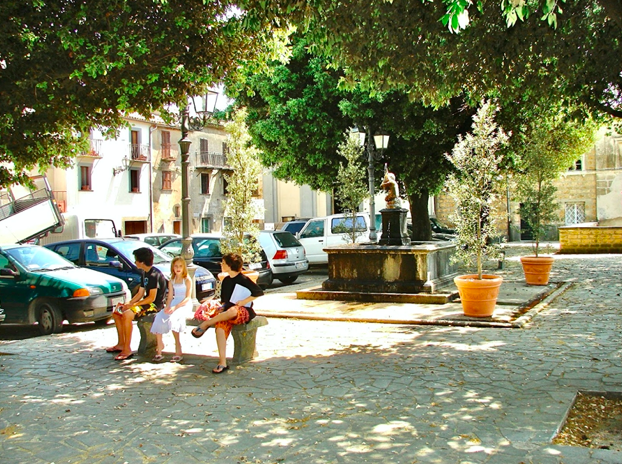
Whether you come to Lubriano or not, I’d encourage you to travel to a small European town sometime in your life. Go there, stay a while, talk to the townspeople, live like a local for more than a day. I guarantee it will ground you and feed your soul in ways you’d never imagine.
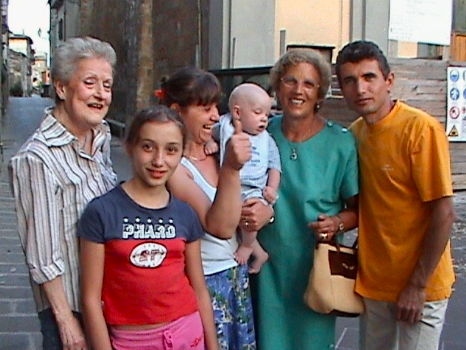
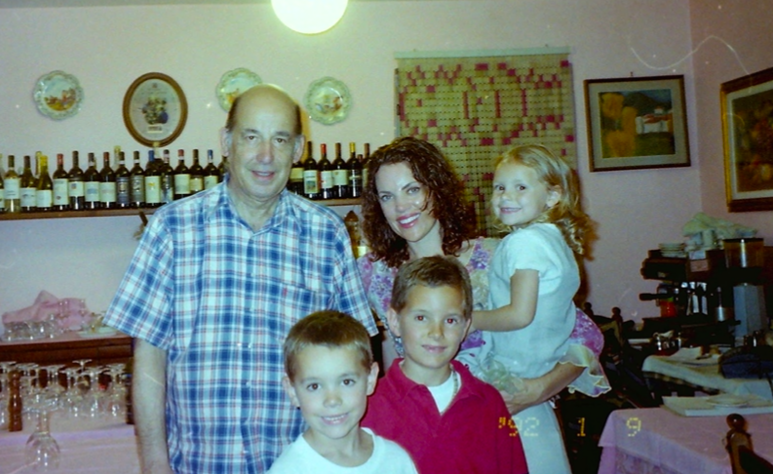
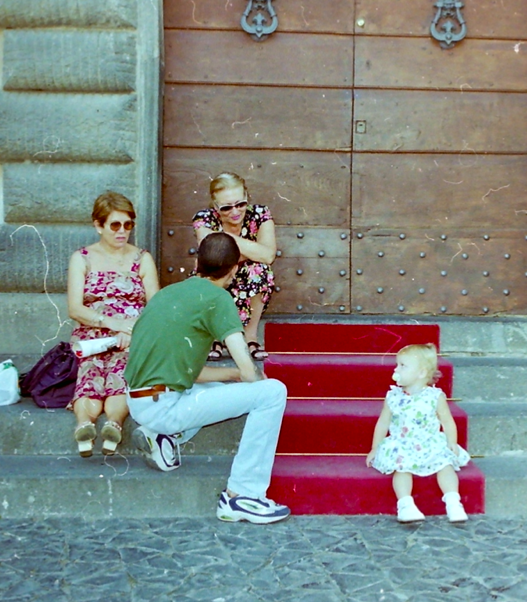
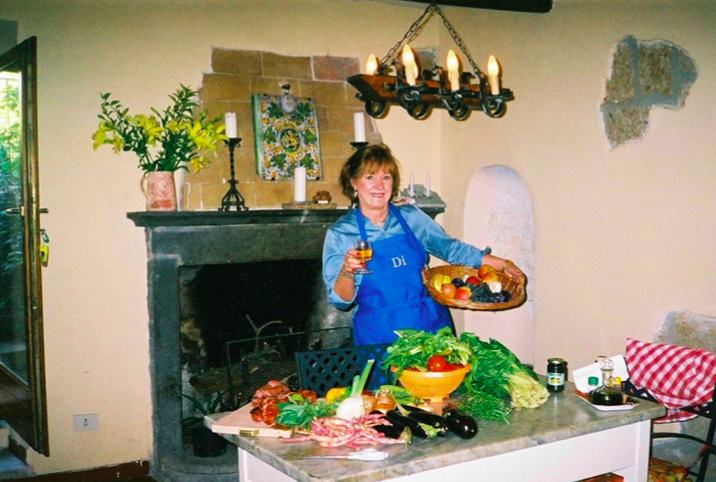
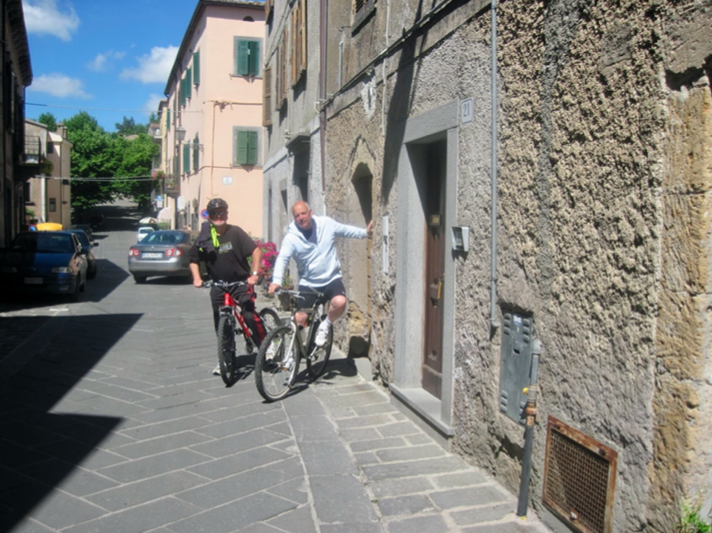
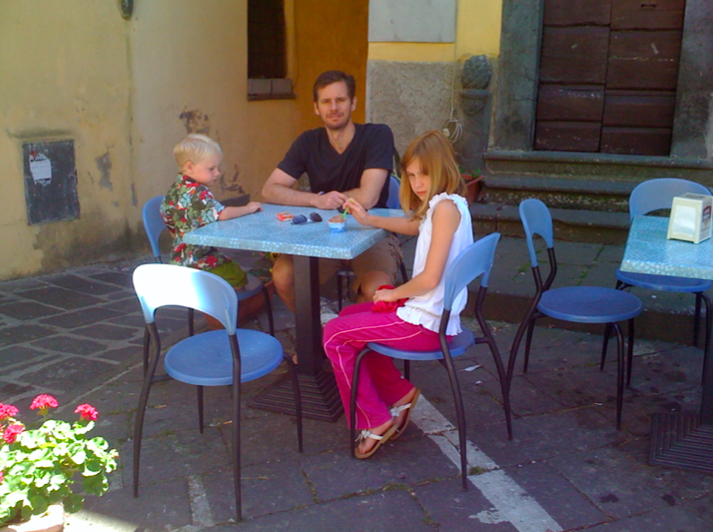
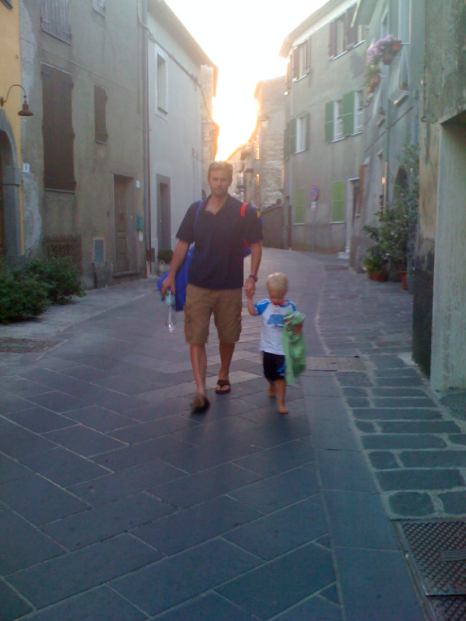
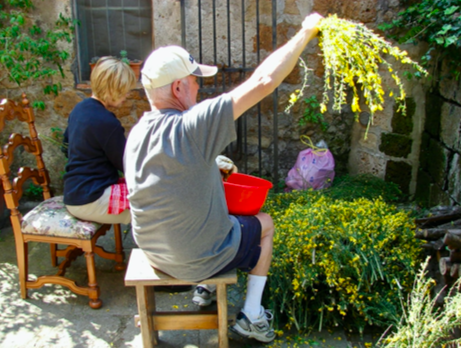
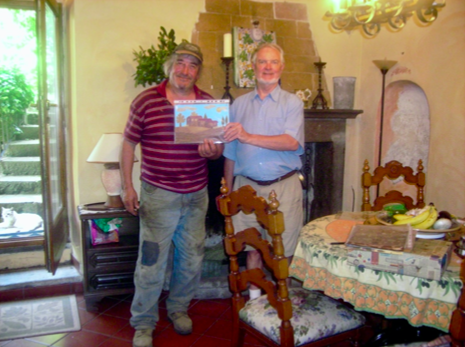
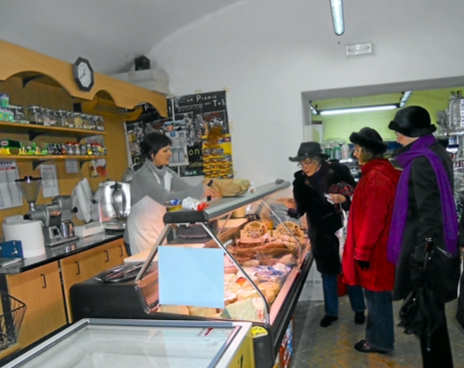
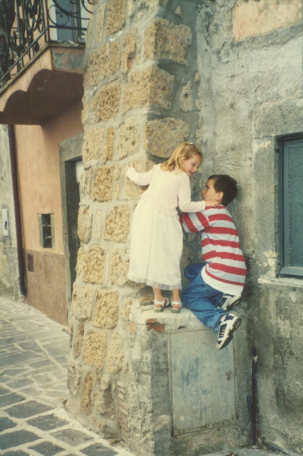
Heather, you have encapsulated 21 Lubriano years into a lovely time capsule.
Being in Lubriano is truly in the “deepening experience” category — the one that can truly enrich one’s soul and put many of our thoughts into fine perspective.
Brava